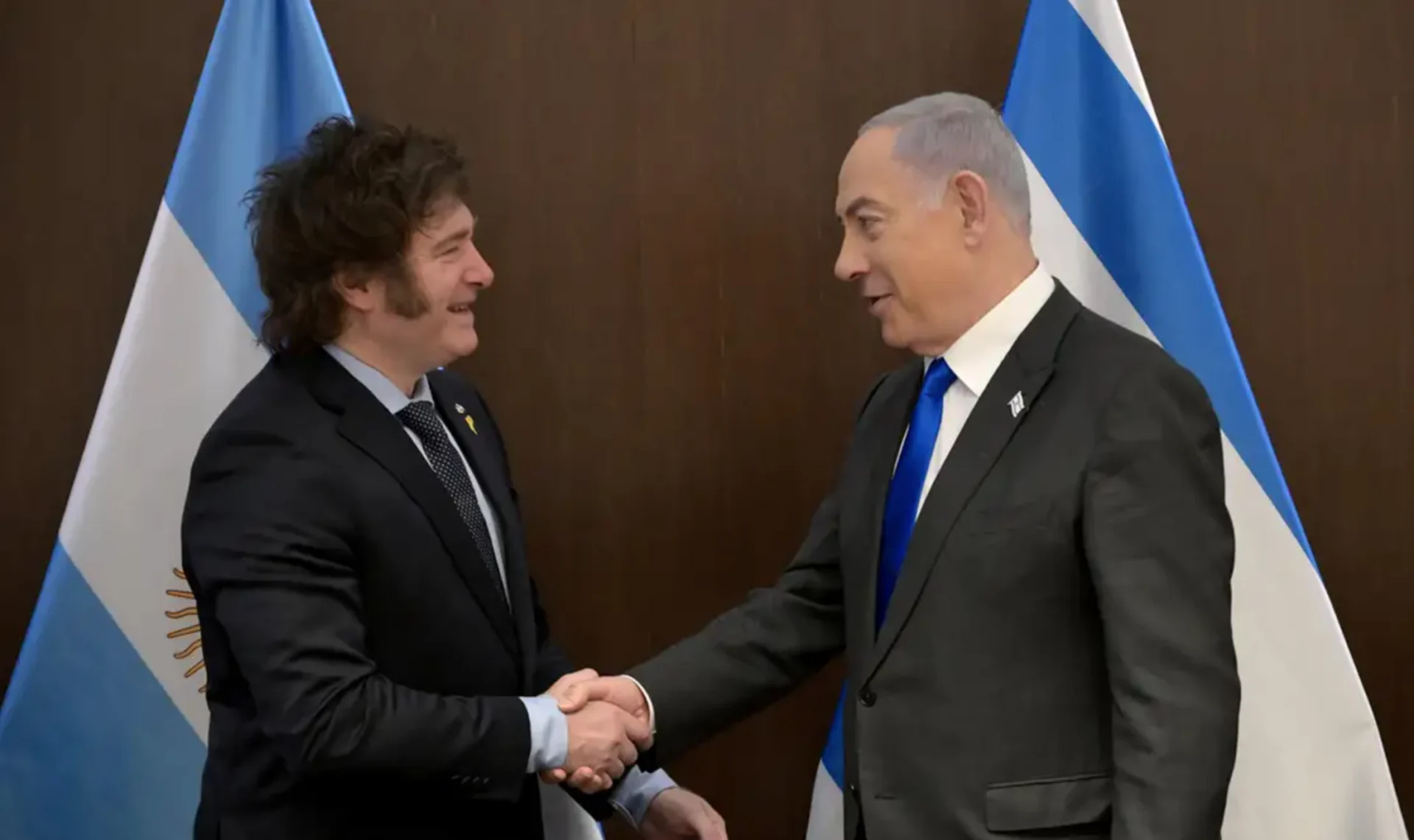Argentina’s “reinsertion in the world” is a goal proclaimed as a mantra by almost all Argentine governments at the beginning of their administrations. An allegorical assumption that refers to an original mythical scene: there was a time when Argentina “was in the world” and was expelled — or left — from that earthly paradise, as a result of the bad policies and mistakes of the successive governments. Until they came to realize it, and proposed to drastically change the course to “return into the world”.
We have heard this over the decades, in one direction or another. Was it 20, 30, 80, or 90 years ago? President Javier Milei took the timeline much further back, raising the magnitude of his current ambition: a hundred years ago, he said, “we were left out of the world.” And he is relatively right, always clarifying to which “world” he refers. The crisis of the British sphere of influence and the agro-export model, which allowed Argentina a successful insertion into the world with sustained growth, republican political institutions, and social progress starting in the 1930s, would have left Argentina “out in the open.”
The Peronist model of autarky and import substitution (1946-1955) would end up being frustrated, giving way to a pendular cycle of unsuccessful attempts of “reinsertion in the world” which would correspond, in turn, to the institutional instability and the crisis of legitimacy of our political regime. Argentina, it will be written then, had become an “international pariah”. The mistakes of foreign policy, the triangular relations with third countries as gestures of rapprochement — or distancing— with the dominant powers and the parallel diplomacy or double tracks of links would be corollaries of these fluctuations in Argentina’s international performance that had their maximum expression in the defeat of Malvinas, in 1982, which ended with the last military dictatorship and led to the recovery of democracy.
Some of these patterns of behavior persisted and persist to this day. Such as the introduction of international politics into national political disagreements and the projection of domestic party politics into the country’s foreign policy. Behaviors and gestures that contrast with the contribution of Argentine diplomacy to peace, security and international law, the outstanding participation in multilateral organizations and the identification with the principles of non-intervention, non-interference, self-determination, humanitarian aid, peaceful resolution of conflicts and defense of human rights.
Argentine rulers who go out to explain to the world how wrong their predecessors were do not seem to realize the incredulity they arouse in their interlocutors. This is especially true when it is pointed out to them that they have been wrong, as President Milei does every time he leaves the country. Nine international tours in six months—none of them to neighbors in the region—put Milei at the top of the list of presidents who have traveled the most since the return of democracy in December 1983. In addition to the number of trips, the purpose of these trips is also important. Besides his notorious preference for the United States, several of them were related to personal concerns or the reception of awards from various institutions and think tanks, practically without state meetings. This has resulted in a long list of altercations with other rulers, leading to bilateral diplomatic conflicts with countries such Mexico, Colombia, Spain, Brazil, and Bolivia.
Milei’s busy schedule of trips abroad during the first six months of his administration ended in June with his attendance to the G7 summit in Bari, Italy and to the Global Summit for Peace in Ukraine, held in Switzerland. In the latter, with the presence of a hundred presidents, President Milei expressed his full support to the Ukrainian president Volodymyr Zelensky. Milei underlined in the summit: “This is part of the great turn we are making as a country after decades of turning our backs to the world”. Days later he traveled again to Spain and then to Germany and the Czech Republic, to receive distinctions for his libertarian militancy. In Prague, he also expressed his intention to make Argentina “a global partner of NATO”.
Thus, in its first six months in office, Milei’s government exposes the validity and persistence of those “deep tendencies” of Argentine foreign policy and their corollaries — overreaction, unpredictability, unilateralism, pendularity —moving between pragmatism and ideology, with the strong imprint of a personal style characterized by its eccentric features. A curious irony is the pretension of reinserting himself in a world that no longer exists. And fighting at every step with the world that does exist and of which we are part, a complex and interdependent world that if anything should expect from its leaders is prudence, intelligence, equanimity and ductility, the ability to awaken trust. President Milei seems to follow more along the lines written by Enrique Santos Discépolo in the 1920s, in a famous tango sung by Carlos Gardel, “you will see that everything is a lie, you will see that nothing is love, that the world does not care: yira, yira…”.
*Translated by Janaína Ruviaro da Silva from the original in Spanish.













